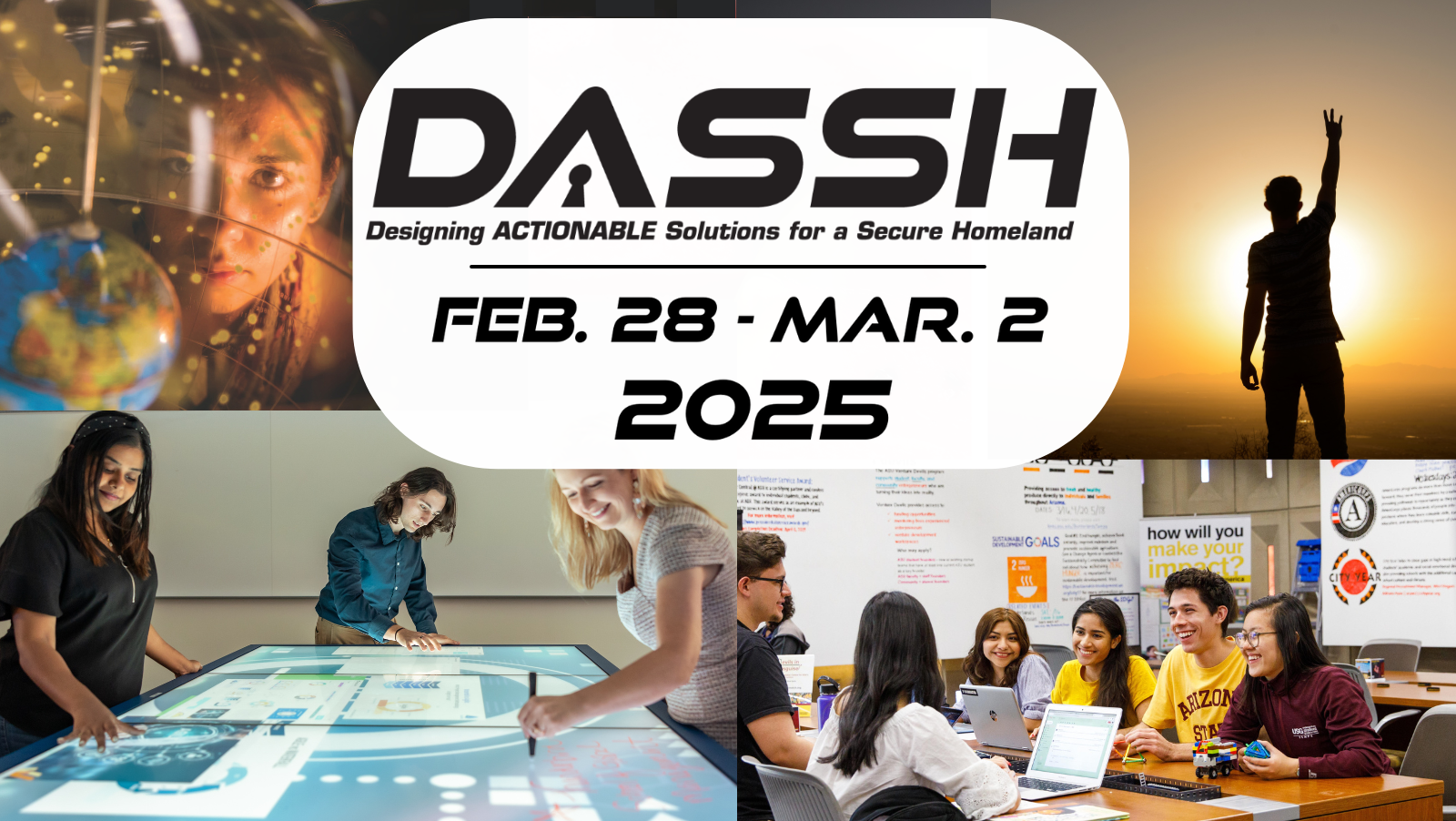Innovative Virtual Experience Offers Students Hands-On Learning and Networking Opportunities

The annual CAOE Summer Experience Quantitative Analytics (SEQAL) for 2024, held from June 3 to June 28, provided a unique virtual platform for students across the nation. Designed to accommodate the needs of students with various schedules and locations, the program combined flexibility with a robust educational framework.
Anthony Kuhn, Associate Director of Education at the Center for Accelerating Operational Efficiency (CAOE) and Associate Teaching Professor at ASU, leads the SEQAL program each summer with a distinct vision. Drawing on his extensive background in engineering design and national security, Anthony introduced the Design Challenge at the end of the program. This initiative reflects his commitment to integrating real-world problem-solving with academic learning. His leadership in running SEQAL exemplifies CAOE’s dedication to fostering interdisciplinary engagement and practical experience for students in homeland security.
Program Structure and Goals
SEQAL’s virtual format involved six hours of daily activities, Monday through Friday. Participants engaged in expert-led workshops, interactive problem-solving sessions, and applied projects. The curriculum emphasized quantitative analytics, including data analytics, decision analysis, simulation, and operations research. A key focus was the development of stochastic simulation models, offering participants practical skills relevant to real-world problems.
The program’s structure aimed to balance rigorous academic challenges with networking opportunities. Each participant received a $3,000 stipend, making the experience more accessible and appealing. At the conclusion of the program, participants presented their analyses and recommendations to CAOE leadership, showcasing their hard work and innovative solutions.
Student Insights: Rishik Kolli’s Experience
Rishik Kolli, a Computer Science major with a Data Science minor from Arizona State University, shared his reflections on the SEQAL program. Kolli was drawn to SEQAL due to its emphasis on quantitative analytics and the opportunity to work on applied projects. “I was excited about SEQAL’s focus on quantitative analytics and the format of learning and working on applied projects over a very short but packed four weeks,” he said.
Kolli’s favorite part of the program was the Design Challenge. “The Design Challenge was my favorite experience because of the wide variety of tools we were allowed to utilize and the flexibility we had to choose which techniques to apply,” he explained. He highlighted the value of hypothesis-driven problem solving, a skill he refined through simulation exercises using tools like NetLogo and Arena.
Kolli also noted the program’s impact on his career goals. “SEQAL has opened up new resources and opportunities, influencing my career goals and academic interests,” he said. His project, which aimed to optimize airport security processes using real-time data and machine learning, demonstrated significant potential to enhance the efficiency and effectiveness of security operations.
Student Insights: Henry Birger’s Experience
Henry Birger, a double major in Mathematics and Economics at the University of Maryland, Baltimore County, also shared his experiences. Birger’s interest in SEQAL stemmed from the program’s focus on optimization, which complemented his academic background. “The reason I applied to the program was the applications of optimization,” he said. “I was particularly impressed by the portion on multivariate optimization with constraints, which I found could be easily performed in Excel.”
Birger faced challenges during the program, particularly with optimizing airport gate agents based on arrival time data. “We tackled this by having each group member attempt different methods and focusing on the most promising ones,” he explained. His project, which aimed to improve security for families with young children, could significantly enhance the efficiency of airport security checkpoints.
Networking and Professional Growth
Both Kolli and Birger highlighted the networking and mentor opportunities provided by SEQAL. Kolli valued the connections made with peers, faculty, and technology experts, while Birger appreciated the exposure to various career paths within operations research and the Department of Homeland Security.
The virtual format of SEQAL posed some challenges, but both students found effective strategies to stay engaged and productive. Kolli benefited from interactive sections and regular screen breaks, while Birger utilized breaks to maintain focus during virtual sessions.
Advice for Future Participants
For future SEQAL participants, Kolli advises: “Get your friends to apply, speak up early, and don’t hesitate to ask questions.” Birger adds: “Make the most of your time interacting with instructors. Stay engaged with the content, ask questions, and don’t be afraid to not know something.”
The SEQAL program continues to provide an invaluable platform for students to develop practical skills, engage in meaningful projects, and explore career opportunities within the public sector. With its emphasis on hands-on learning and real-world applications, SEQAL remains a significant educational experience for students across the nation.
